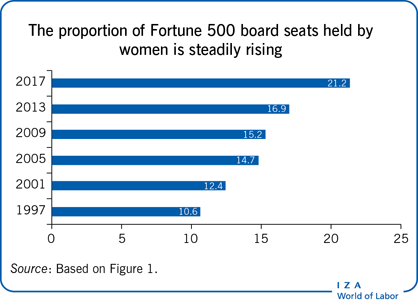Elevator pitch
Women's representation on corporate boards, political committees, and other decision-making teams is increasing, this is in part because of legal mandates. Evidence on team dynamics and gender differences in preferences (for example, risk-taking behavior, taste for competition, prosocial behavior) shows how gender composition influences group decision-making and subsequent performance. This works through channels such as investment decisions, internal management, corporate governance, and social responsibility.

Key findings
Pros
Gender diversity leads to broader representation of preferences.
Diversity policies help promote equal opportunities and make up for past inequities.
Promoting diversity could help break down cultural barriers.
Greater female participation might encourage other women, who will be better prepared.
Cons
The transition to greater diversity has adversely affected performance, at least in the short term, due in part to adjustments in team dynamics.
The short-term decline in performance is often attributed to team members’ skill mismatch and team interactions.
There is evidence that endogenously formed teams are hard to sustain and that they revert to less diversity.
Legislative mandates might be ineffective and counterproductive if committees with a higher share of women are less likely to select female candidates.